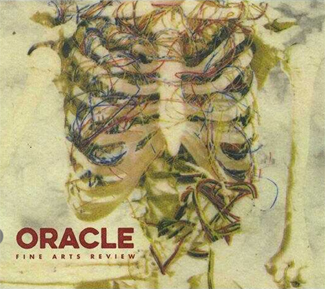As published by Oracle Fine Arts Review (of the University of Southern Alabama) in the late spring of 2017
“Oh, Charles – may I call you Charles?” said Betty Morgan. “I’ve admired your work for years! It’s wonderful to know you’re here at Melody Acres.”
Betty Morgan – they were all wearing name tags – was a handsome woman. Surely on the short side of sixty, blond bobbed hair, age not yet withering a high-cheekboned face. A figure she had not let go. Reminded him of Henrietta in her prime. Maybe he’d be glad he chose this place. Already glad he’d worn the flowing shirt, open down to chest hair, that he’d had tailored after his costume as Henry V. A little touch of Harry in the night.
“My husband Oswald – he’s over at that other table – has never been a Shakespeare fan, but  even he admired your Othello. Magnificent! I dragged him to see you again when they brought it to Hartford. We must have you do a reading here.”
even he admired your Othello. Magnificent! I dragged him to see you again when they brought it to Hartford. We must have you do a reading here.”
So, not single. But Oswald looked at least a decade older than his wife; he had a cane tucked under his seat. There were perhaps a dozen tables for this “mixer dinner,” in a spacious, well-appointed room, residents served attentively by young waiters and waitresses, probably college students. Not a bad meal; up to the standards of a good restaurant.
Melody Acres was touted as the best of the region’s retirement communities, both in amenities and in a warm, welcoming ethos among its residents. Charles had decided to move here when his high-rise condo became unbearably lonely after Henrietta’s death, to say nothing of its being too big. He’d been looking forward to the touted programs, like this dinner social, to help newcomers meet people in “the community.”
The other two at his table looked eightyish, and apparently weren’t theater devotees. “You were an actor?” one asked. Melissa Taylor, by her name tag.
“Not just an actor,” Betty Morgan answered before he could. “A Broadway luminary. Charles Livingston. A legend! Shakespeare, Ibsen, Tennessee Williams, Inge. . .”
“You are too kind,” he interrupted. “Yes, Mrs. Taylor, I was an actor. I’ll bet you and your husband had interesting careers, too.”
Hardly so, it turned out. Mr. Taylor had been a mid-level insurance executive, she a mother and club member. Golfers, bridge players. Nonetheless he prompted for details, and listened politely.
Betty Morgan couldn’t wait to get back into the conversation. “When our kids were old enough, I went to work for the United Way, chaired committees, did community stuff, never had time for bridge.” She leaned closer. “Poor Oswald spent his life wondering where I was. Now that we’re retired, he’ll hardly let me out of his sight. Look at him now.”
Indeed her husband, ignoring the conversation at that table, was staring. Charles gave him his best stage smile, and turned back to her. “We must find occasions to stay in touch.”
“Oh, yes! We’re just down the hall. Why don’t you come to our apartment for a glass of wine tomorrow and then up to dinner? That may keep Oswald from having a jealous fit.”
That next evening went well. He wore a jacket tailored after one he’d worn as Henry Higgins, a gray that set off his still-thick thatch of white hair. Betty Morgan had invited another couple to join them, pleasant company. He heaped fulsome attentiveness on Oswald, who had been a chemistry professor but had trouble remembering detail.
“I try to stay fit,” Oswald said. Despite a bad knee, he managed long walks. “There are trails. That path outside our door leads to a state park, you know. Meadows, forests. And birds.”
“He used to know all the birds,” Betty broke in. “He could tell them by their songs. Birding by ear, it’s called. Nowadays he sometimes wanders off the trails trying to see who’s singing. I worry about him.”
She was even prettier than he’d remembered her. Vivacious, smiled readily, a really good figure. Insisted on telling her other guests about his acting career. Charles scrutinized her moves around the room, offering cheese and crackers. When he realized Oswald was watching him watch her, he turned to chat with the bridge-playing couple. The evening ended with promises from all to stay in touch.
The material given him on arrival included a map of the adjoining state park. He studied it that night, and set out at dawn to explore, wearing nondescript jeans, map in hand.
A well-manicured lawn and graveled walk, with a handsome view of a grassy meadow streaked with early sunlight, led a few hundred yards to a gazebo gateway to the park, which was indeed very large. Despite well-marked trails, one could imagine getting lost. He wandered observantly. Evergreen forests, hardwoods, meadows. Not far from the gateway was a pond drying into a huge swamp, classic eutrophication. Charles shouldered through the reeds, stepping carefully on spongy ground, and almost stumbled into a section of the bog that looked like quicksand. He picked his way out carefully, and hiked back to the complex for lunch.
He rose early again the next morning to spend a half-hour scoping out the near forest more carefully. Just inside the gazebo gateway, at the intersection of several trails, was a rustic bench where one might read one’s newspaper and see any morning walker who came into the forest. He sat down to test it – not very comfortable – when along came Oswald, binoculars around his neck. “Good morning!” Charles greeted. “I’ve had a long walk; you just starting out?”
“As regular as clockwork. Seven every morning.” He limped off on his cane.
Charles headed back. There was a much more comfortable bench a hundred yards from his door, at the head of that neatly-groomed path toward the forest. He fetched The Times from his room and went back to read in the warming sunshine. Oswald reappeared at eight. One hour exactly. “Good morning again,” Charles said. “You’ve had a good walk.”
“You’re that actor fellow, aren’t you? Did I see you earlier today, or was it last night?”
“Both, thank you. Charles Livingston. Enjoy your morning.” He went back to his paper, letting the older man hobble back to the complex alone.
The Morgans’ apartment was fifty yards down a wide hallway decorated with tastefully-chosen artwork and carpeted so thickly that one hardly heard people come and go. But Charles, nearer the outside door, could keep an eye on the hallway from a little window near his kitchenette. Oswald set out the next morning at precisely seven.
Charles had chosen an open-necked shirt he’d worn as Stanley Kowalski, a design borrowed from Brando. He took a measuring cup and hurried down the hall to knock on the door.
“Sorry to bother you so early. I wondered if I might borrow a cup of sugar?” She was wearing a frilly peignoir.
“Oh, of course. Come in for a moment.”
The little apartment was redolent of coffee. She must have seen him sniffing it. “I’d offer you a cup, but if Oswald saw signs that someone had been here, he’d go crazy.” She made a face. “As his memory slips, he’s become more fiercely possessive. Wait now.” She took his measuring cup, and was back in a moment, standing close and looking up as she handed to him. “Here you are. Enjoy whatever it is you’re making for breakfast.”
He’d have sworn she considered offering him a kiss but thought better of it.
“Feel free to come any time,” she said cheerfully.
“Thank you,” he said, and went back to his room.
He spent the afternoon in the forest, becoming familiar with the pond and swamp. The reeds and high-bush blueberries were dense enough that anyone who managed to wander into the quagmire and fell wouldn’t been seen from the dry land. Back at his apartment, he did an Internet search for “rare water birds Connecticut” and found a snowy plover. In a few minutes – an actor’s skill – he could mimic the rattling, drawn-out quir-eee call.
Next morning, after seeing Oswald leave for his walk, he put on the Brando shirt again and went to return Betty’s cup of sugar. She was in a dressing gown even more diaphanous than the one the first morning.
“I thought you might be back,” she said. “I do wish I could invite you in. Wait here.”
He watched while she went to her kitchenette and emptied the sugar into a large container. She walked with an easy grace, and came back to stand again very close, looking up invitingly, as she handed him the cup.
He kissed her.
She kissed him back, lips parted, and then abruptly pushed him away. “Go now. I’ll have to put on fresh lipstick. Oswald would notice. He’s insanely insecure.”
The next three mornings, Charles read his Times on the pathway bench. Oswald came and went punctually. Charles asked each morning if the older man had chanced to see or hear a snowy plover.
“No,” Oswald said each time, “but I’d sure like to. I’m watching and listening.”
Several other residents passed on constitutionals along the Melody Acres paths, but none ventured toward the forest. Each morning, toward the end of his reading hour, a security guard said hello on what appeared to be morning rounds.
He spent the rest of those next three days meeting others. There were gaggles of mostly women playing duplicate bridge and mahjong, and men playing cribbage. Two flocks of women met several times a week to paint together, some of the work very good indeed. There were three musical coveys, including a very good choral group, as well as chimes and hand-drumming. A clutch of mostly women spoke French in a private room at lunch time. There was an assemblage writing memoirs and another learning how to use smartphones and tablets. He visited them all, introducing himself, explaining that he was sampling activities he might join, and paying attention as participants introduced themselves.
Orientation, he told himself. Augmented each evening by studying the online directory of residents, which included photographs. Women outnumbered men, as he’d expected. A preponderance of the widows, some of whom he’d now met, were rather old and frail. Single men distinctly an endangered species. Almost all the younger women seemed to have husbands.
He found two youngish widows, however – one in the memoir group, one in his online research – who might be promising. He invited each, on the next two evenings, to join him at dinner. One, a former kindergarten teacher, couldn’t talk about anything but young children, didn’t care about classical music or theater and didn’t know him from Adam. The other proved to be straight as a stick, ten years older than her photo in the directory, and conversant primarily about her children, grandchildren and sainted late husband.
On the fourth morning, Charles changed his routine, taking his newspaper to the bench at the intersection of the forest trails, near the swamp. He now made it his daily habit to greet Oswald there, then fold his newspaper and walk back to the Melody Acres bench, where he read for another half-hour until the security fellow came by, and then went in to breakfast.
A week later, Oswald failed to come home from his morning walk. Charles was able to confirm that he’d seen the older man set out. The security guard hadn’t seen Oswald, but remembered seeing Charles, absorbed in his newspaper as usual.
A search was mounted. Oswald was not found.
Charles was sure Betty would grieve, but would welcome solace.






Sounds like Charles got rid of his problem. If something like that could happen in a nice place like Melody Acres, what about here?